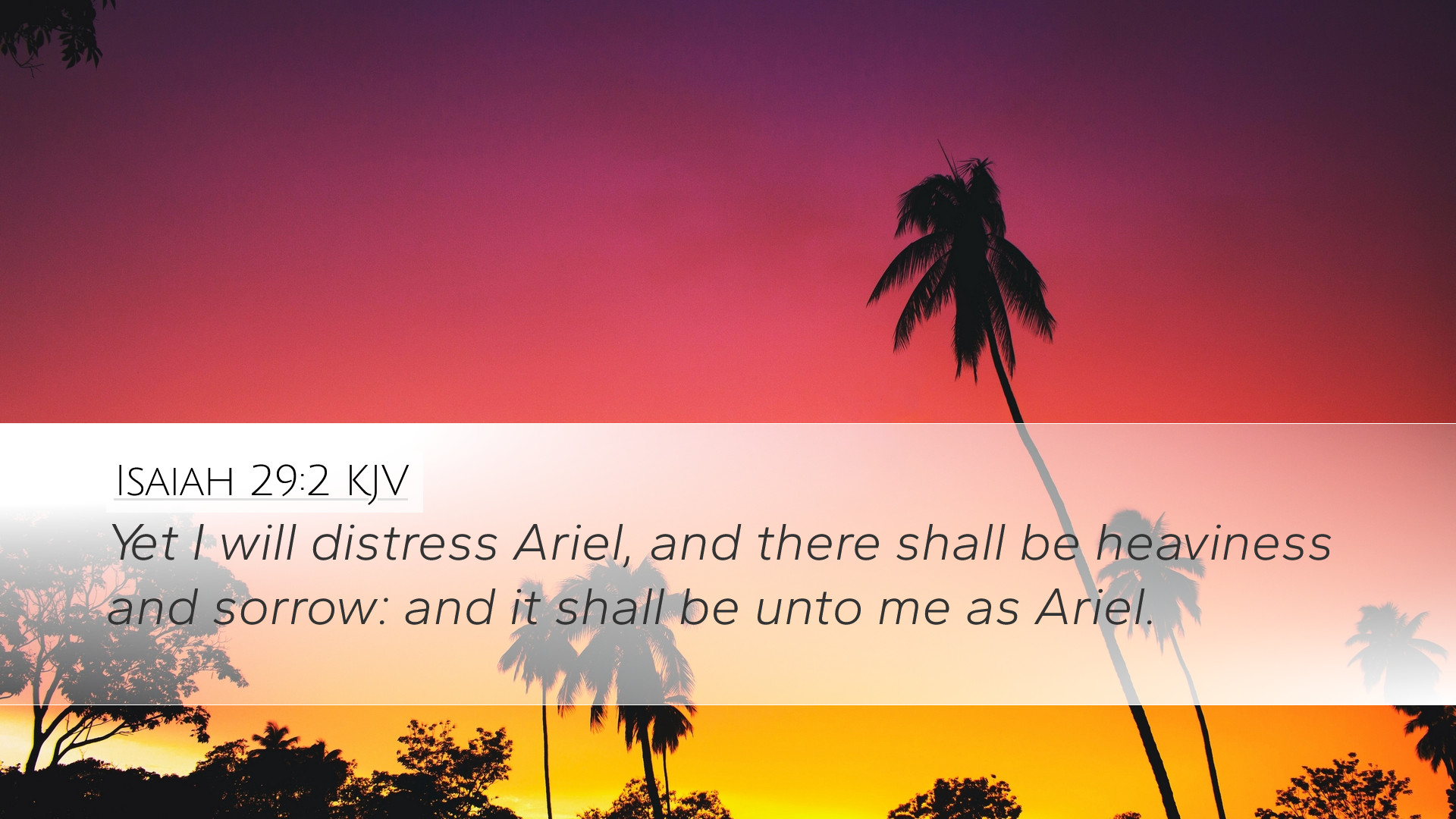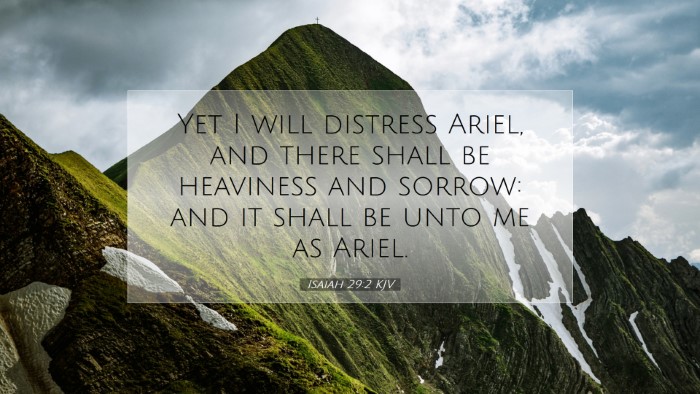Commentary on Isaiah 29:2
Isaiah 29:2 states:
"Yet I will distress Ariel, and there shall be heaviness and sorrow: and it shall be unto me as Ariel."
Introduction
This verse is set within a broader context of prophecy concerning Jerusalem, referred to as Ariel. This term holds deep significance, with scholars suggesting it means "the lion of God," which, in the context of Jerusalem, may symbolize both strength and the inherent challenges faced by the city.
Contextual Analysis
To better understand this verse, we can draw insights from various public domain commentaries:
- Matthew Henry's Commentary: Henry emphasizes that the term "Ariel" represents the people of Jerusalem and their spiritual condition. He notes that God’s intention is to bring distress, signifying a call to repentance and a return to righteousness.
- Albert Barnes' Notes: Barnes elaborates on the idea that God's distressing of Ariel signifies a divine purpose in judgment. He contends that this verse foretells a time of heavy sorrow, which serves to awaken the hearts of the people towards their need for divine intervention.
- Adam Clarke's Commentary: Clarke points out that this distress is both literal and metaphorical. He interprets "heaviness and sorrow" as not only physical hardship but also spiritual turmoil. Clarke identifies the duality of God’s instruction through suffering—while it is painful, it is ultimately redemptive.
Theological Significance
This verse raises important theological questions about suffering, divine judgment, and the nature of God’s relationship with His people:
- Divine Judgment: The distress mentioned in this verse serves as a tangible manifestation of God’s response to disobedience. It presents God as not only a God of mercy but also one who disciplines His people for their benefit.
- Call to Repentance: In the context of heavy sorrow, there lies an implicit invitation for the people to repent. This theme runs throughout the prophetic literature, echoing a divine longing for restoration.
- Understanding Ariel: The dual nature of Ariel as both a stronghold and a location destined for suffering reflects the complexity of human existence. Jerusalem is seen as a city both favored and challenged by God, illustrating the depth of His engagement with the world.
Practical Applications
For modern believers, this passage delivers several practical implications:
- Awareness of Spiritual Condition: Just as God brought distress to Ariel, believers are called to evaluate their own spiritual standing. Acknowledging areas of disobedience can lead to genuine repentance.
- The Purpose of Suffering: Understanding that suffering can serve a purpose offers comfort. It reminds individuals that hardship may lead to spiritual growth, ultimately drawing them closer to God.
- Encouragement in Trials: The acknowledgment that suffering can be divinely ordained encourages believers to seek God during difficult times, trusting that He is working to bring about transformation.
Conclusion
Isaiah 29:2 encapsulates themes of judgment, sorrow, and the transformative power of God’s discipline. The insights drawn from various commentators remind us that through His actions, God seeks to cultivate a people that are reflective of His holiness. Whether for pastors, students, or scholars, the call remains—to seek God amid difficulties, understand the purpose of His dealings, and respond with repentance and faith.


